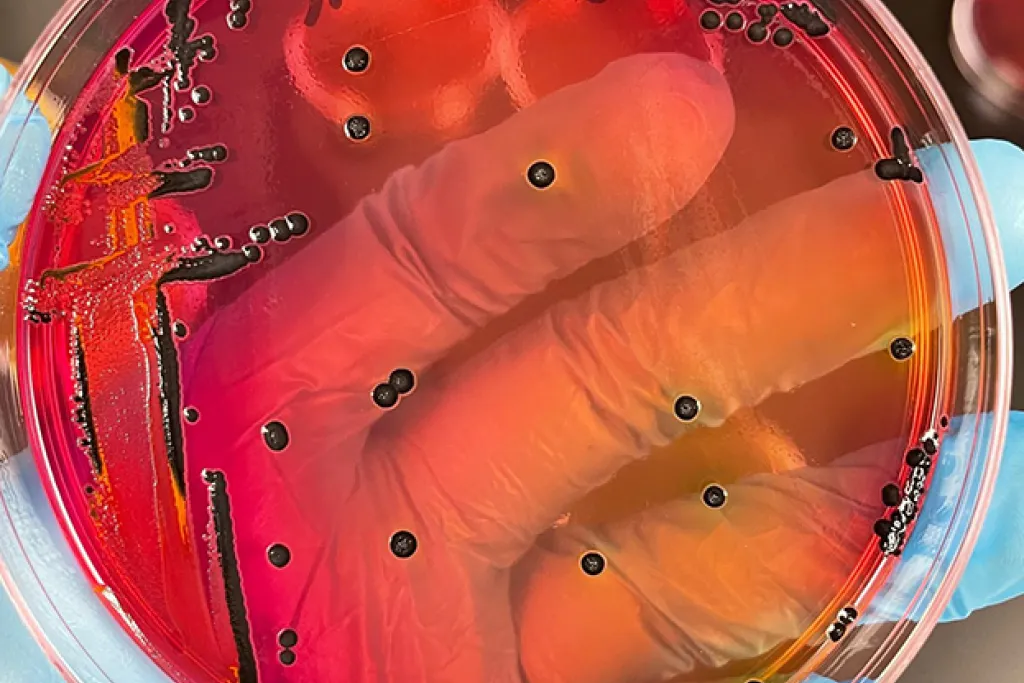
Using technology; she developed, UGA researcher Nikki Shariat and Amy Siceloff, a first-year doctoral student in UGA’s Department of Microbiology, found that traditional culturing methods used to test livestock for problematic bacteria often miss drug-resistant strains of salmonella. This finding has implications for treating sick food animals and the people who get infected by eating contaminated meat.
The study, published in Antimicrobial Agents and Chemotherapy, showed that 60 percent of cattle fecal samples contained multiple strains of salmonella that traditional testing methods missed. More alarmingly, Shariat found that about one out of every 10 samples tested positive for a drug-resistant strain of salmonella called Salmonella Reading which can cause severe illness in people. This study was funded by USDA’s National Institute of Food and Agriculture. For more information, read this UGA newswire article.
Farm Bill Priority Areas
Food Safety, Nutrition, and Health
U.S. States and Territories
Georgia

